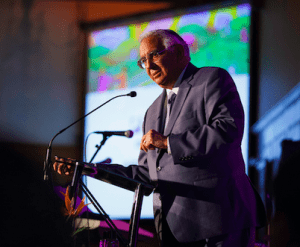 Acts 15 is a watershed in earliest Christianty — even if it interrupts the flow of the gospel and mission of God in the Book of Acts, and how you read this chapter affects everything about how you read the rest of the New Testament. Does this chapter create two kinds of Christians — Jewish and Gentile? Or does this chapter create a temporary expedient — some basic laws need to be followed by Gentiles until later in the Church? Here we go.
Acts 15 is a watershed in earliest Christianty — even if it interrupts the flow of the gospel and mission of God in the Book of Acts, and how you read this chapter affects everything about how you read the rest of the New Testament. Does this chapter create two kinds of Christians — Jewish and Gentile? Or does this chapter create a temporary expedient — some basic laws need to be followed by Gentiles until later in the Church? Here we go.
15:1 Now some men came down from Judea and began to teach the brothers, “Unless you are circumcised according to the custom of Moses, you cannot be saved.” 15:2When Paul and Barnabas had a major argument and debate with them, the church appointed Paul and Barnabas and some others from among them to go up to meet with the apostles and elders in Jerusalem about this point of disagreement. 15:3 So they were sent on their way by the church, and as they passed through both Phoenicia and Samaria, they were relating at length the conversion of the Gentiles and bringing great joy to all the brothers. 15:4 When they arrived in Jerusalem, they were received by the church and the apostles and the elders, and they reported all the things God had done with them. 15:5 But some from the religious party of the Pharisees who had believed stood up and said, “It is necessary to circumcise the Gentiles and to order them to observe the law of Moses.”















